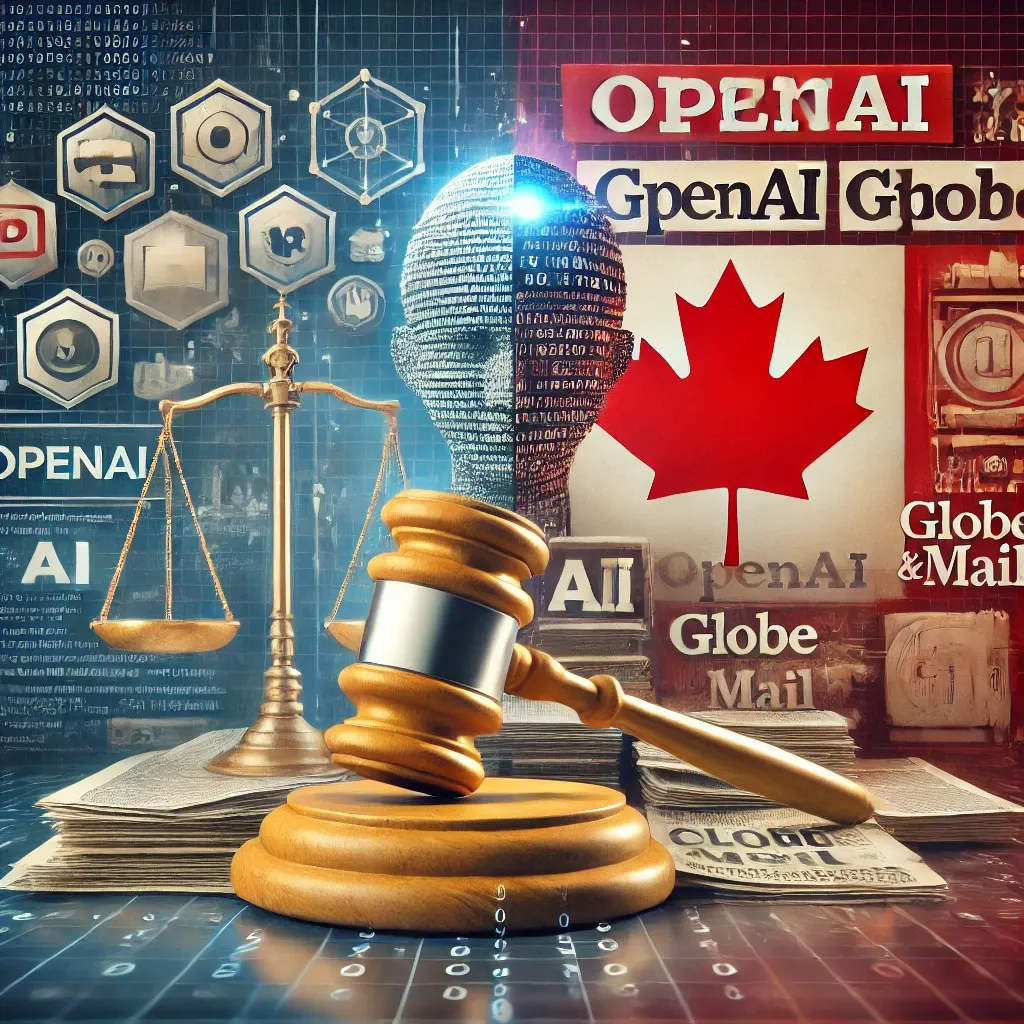OpenAI Faces Lawsuit from Canadian News Publishers
Five Canadian publishers, including Torstar Corp. and Globe and Mail Inc., have filed a copyright lawsuit against OpenAI. The lawsuit, filed in Ontario Superior Court, claims scraped journalistic content without permission to train its AI products. Plaintiffs argue that profited from their content without compensating the rightful owners.
Canadian Publishers Demand Accountability from OpenAI
The publishers say their content makes up most of Canada’s journalism and accuse OpenAI of exploiting it for financial gain. “ is capitalizing on our work without permission or fair compensation,” the group stated in their legal filing. They argue this misuse undermines the value of their content and the integrity of Canadian journalism.
OpenAI Defends Its Training Practices Amid Criticism
OpenAI responded, claiming its models rely on publicly available data and follow international copyright principles, including fair use guidelines. The company stated it offers tools for publishers to manage how their content is displayed or excluded. This stance mirrors its approach to other similar lawsuits, such as one filed by The New York Times.
Broader Legal Challenges for OpenAI
This lawsuit adds to growing legal challenges against OpenAI over alleged copyright violations. In 2022, The New York Times also sued OpenAI for using its articles to train AI models. These cases spotlight the growing conflict between AI innovation and the protection of intellectual property rights, a debate shaping the industry’s future.
News Media Canada Criticizes OpenAI’s Practices
Paul Deegan, president of News Media Canada, accused OpenAI of “strip mining journalism” for profit without providing adequate compensation. He argued that OpenAI’s actions have unjustly enriched the company while devaluing Canadian journalism. This criticism highlights the broader industry concern over the impact of AI on traditional media.
Lawsuit Highlights Need for Copyright Clarity in AI
The lawsuit against OpenAI underscores the urgent need for clearer copyright rules in the AI era. Media organizations demand stronger protections and fair compensation for content used in AI training. These legal battles could establish critical precedents, influencing how AI companies and publishers collaborate in the future.
Ethical Responsibilities of OpenAI in Content Usage
The lawsuit against OpenAI also raises questions about the ethical responsibilities of AI companies when utilizing publicly available data. While these firms often argue that their practices align with fair use principles, critics say this approach disregards the value of the original creators’ work. Publishers and journalists invest heavily in producing high-quality content, and many believe that AI companies must establish partnerships or licensing agreements to ensure fair compensation. This debate not only impacts the relationship between AI firms and content providers but also has implications for the future of innovation. Striking a balance between technological advancement and respect for intellectual property will be critical as artificial intelligence becomes more deeply integrated into various industries.







